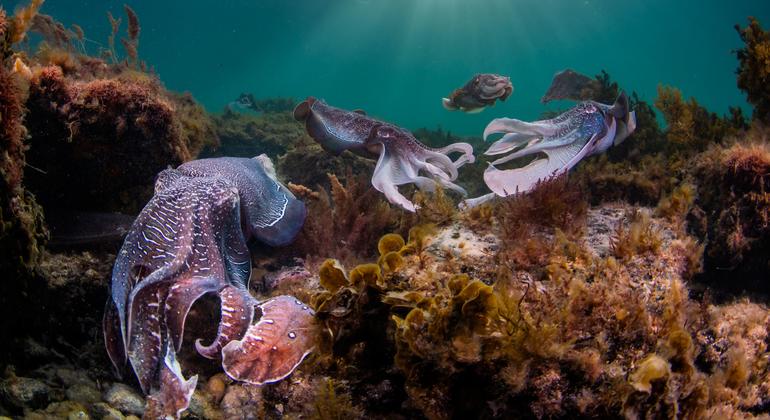Sure! Here’s the translation into American English:
—
From June 9 to 13, Nice will transform into the global center for the Third United Nations Conference on the Oceans, a crucial event co-chaired by France and Costa Rica, aimed at addressing an ocean crisis that has reached alarming levels. World leaders, scientists, and activists will gather to discuss appropriate measures in response to the increasing degradation of the oceans, a phenomenon noted by senior UN official Li Junhua, who warns that we are close to a point of no return.
The summit will unfold in a critical context marked by climate change, plastic pollution, ecosystem loss, and the overexploitation of marine resources. Dialogues are expected to result in the adoption of a political declaration and the presentation of the Nice Action Plan on Oceans, designed to accelerate initiatives for the conservation and sustainable use of these vast ecosystems.
The statistics are compelling. In April, sea surface temperatures reached record highs, and coral reefs experienced their most significant bleaching, severely impacting marine biodiversity. According to Li, the crisis in the oceans is not a hypothetical future but an ongoing threat that is already causing tangible harm. Alarmingly, more than 90% of the excess heat generated by greenhouse gas emissions has been absorbed by the oceans, reflecting the seriousness of the situation.
Despite some progress in policies, such as the phasing out of subsidies that promote overfishing and the signing of the High Seas Treaty, experts point out that efforts remain insufficient. Li emphasizes the urgent need to mobilize resources globally to counteract this crisis. Funding for ocean initiatives is scarce and represents only a fraction of what is necessary to protect and restore vital marine ecosystems.
The Nice Action Plan aims to implement concrete actions, such as combating illegal fishing and reducing plastic pollution. The data is alarming: every year, 12 million tons of plastic end up in the oceans, and over 60% of marine ecosystems are in a state of degradation. The summit will also focus on including coastal communities and groups that have historically been marginalized, seeking to empower those directly suffering the consequences of climate change.
Located in the Mediterranean, a region that is warming faster than the global average, the conference underscores the urgency of acting in response to this crisis. As delegates prepare for discussions in Nice, the pressure is palpable; the success of this international meeting will depend on the willingness of countries, businesses, and communities to commit to taking decisive actions that positively impact the health of the oceans.
—
If you need any further modifications or assistance, feel free to ask!
Source: MiMub in Spanish











